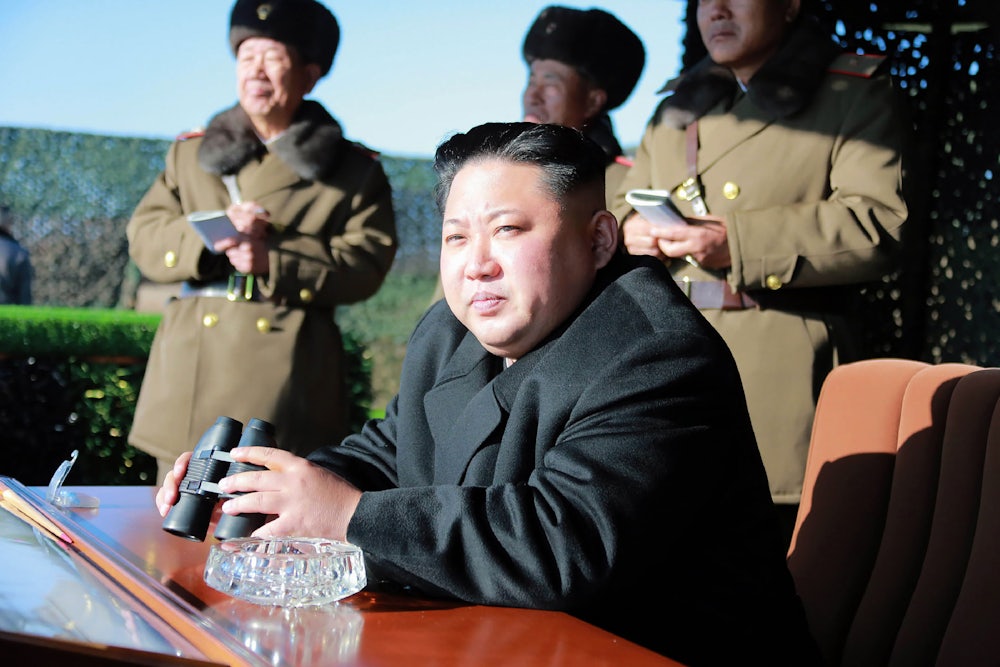When it comes to North Korea, Trump and his cabinet are a hair below “saber-rattling” on the diplomacy scale. Over the weekend, Mike Pence, who is in southeast Asia, said that the “the era of strategic patience is over” when it comes to North Korea. National Security Adviser H.R. McMaster told ABC’s Martha Raddatz that “this problem is coming to a head,” that “all of our options are on the table,” and that Trump “will take action” to fix this. Bloomberg, meanwhile, reported that while Trump was not interested in regime change in North Korea, he was open to “kinetic action”—a one-off strike that could cripple the country’s nuclear program.
It’s true that North Korea is a problem that presidents have kicked down the road since the Clinton administration. The Woodrow Wilson Institute’s Robert Litwak told the New York Times that the situation in North Korea is “the Cuban missile crisis in slow motion.” This is a pretty silly analogy given that the defining aspect of the Cuban missile crisis was how quickly it escalated. (Also, Cuba is right next door, and was then backed by a legit nuclear power.) But it is also true that, as North Korea gets closer to its goal of being able to strike the United States with a nuclear weapon, the situation between the two countries has escalated to a point that may be unprecedented.
Trump is a bluffer. He has bluffed again and again, most notably in the doomed push to pass the American Health Care Act. Trump threatened to force Paul Ryan to hold a vote even though he knew the measure wouldn’t pass. But when it became clear that the threat was insufficient to get congressmen to change their votes, he folded.
A strike by the United States, even a “kinetic” one, would likely have serious consequences. In 2010, for instance, North Korea sank the South Korean ship the ROKS Cheonan in retaliation for the sinking of one of its vessels four months earlier—46 sailors died. It’s possible that North Korea could respond to a Trump-ordered strike in similar fashion, sparking a new war on the Korean Peninsula.
So two things could simultaneously be true: that the U.S.-North Korea relationship has reached something of an inflection point and that the Trump administration isn’t actually prepared to start a war. Given that North Korea has suddenly become a top priority, in the same month that the administration ordered high-profile attacks on both Syria and Afghanistan, makes it seem as if the White House is swinging wildly at enemies across the world, without any real plan. The problem is that even a bluff paints all sides into a corner. North Korea, for instance, will not want to look like it is backing down before U.S. pressure. This is the context behind the failed missile test that took place over the weekend, proof that the U.S.’s rhetorical provocation is producing an aggressive, if inept, response.
